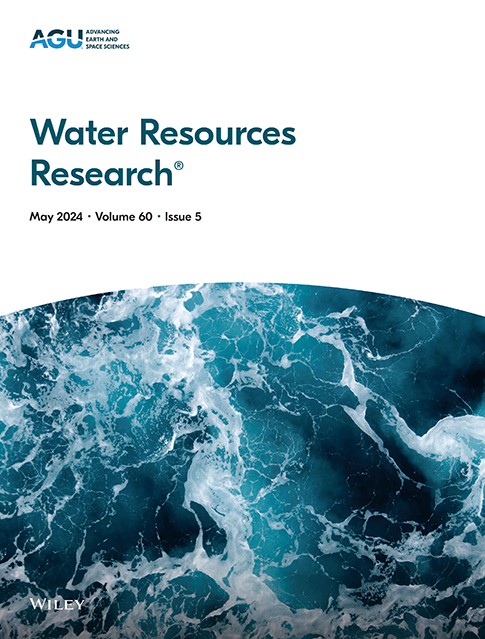人类世近郊湖泊生态突变与恢复轨迹:来自古生态学的见解与模型投影
IF 4.6
1区 地球科学
Q2 ENVIRONMENTAL SCIENCES
引用次数: 0
摘要
在快速变化的人类世中,城市和城郊湖泊正在经历严重的生态恶化,导致有毒藻类的增殖危及生态系统服务和公众健康。然而,这些湖泊对人为干扰、管理干预和气候变化的生态反应仍然没有得到充分的了解。基于综合古生态调查和模型预测,研究了20世纪90年代至2050年中国东部代表性近郊湖泊骆马湖藻类群落的动态变化轨迹。光养色素分析表明,自21世纪初以来,藻类丰度呈指数级增长,同时在快速城市化、农业和渔业实践的驱动下,群落向富营养化类群的突然转变。最近基于速率的观察表明,由于管理努力,藻类生产和蓝藻增殖出现逆转,表明早期生态恢复。然而,在两个代表性气候情景(SSP1-2.6和SSP5-8.5)下的模式预估表明,到2050年,藻类丰度将继续增长,生态响应速度将加快。这突出表明,气候变暖可能会冲淡营养物质减少的预期效益,对未来的城市湖泊管理构成重大挑战。本研究强调了将气候适应纳入以速率为重点的管理战略以减轻不利生态影响的必要性。我们的研究结果为决策者提供了有价值的见解,有助于更广泛地了解城市湖泊生态系统对人为和气候双重压力的响应,为全球气候变化背景下有效的湖泊恢复提供了新的视角。本文章由计算机程序翻译,如有差异,请以英文原文为准。
Abrupt Ecological Shift and Recovery Trajectory of a Peri-Urban Lake in the Anthropocene: Insights From Paleoecology and Modeling Projection
Urban and peri-urban lakes are undergoing significant ecological deterioration in the fast-changing Anthropocene, leading to toxic algal proliferation jeopardizing ecosystem services and public health. Nevertheless, the ecological response of these lakes to anthropogenic disturbances, management interventions, and climate change remains inadequately understood. This study examined the dynamic trajectory of the algal community from Luoma Lake, a representative peri-urban lake in eastern China, from the 1900s to 2050, based on comprehensive paleoecological investigations and model projections. Phototrophic pigment analysis indicated an exponential increase in algal abundances since the early 2000s, coupled with an abrupt community shift toward eutrophic taxa driven by rapid urbanization, agricultural and fishery practices. Recent rate-based observations suggested a reversal in algal production and cyanobacterial proliferation due to management efforts, signaling an early ecological recovery. However, model projections under two representative climate scenarios (SSP1-2.6 and SSP5-8.5) suggested continued algal abundance growth and accelerated ecological response rates until 2050. This highlighted that the anticipated benefits of nutrient reductions may be diluted by climate warming, posing a significant challenge for future urban lake management. This study underscores the necessity of incorporating climate adaptation into rate-focused management strategies to mitigate adverse ecological impacts. Our findings provide valuable insights for policymakers and contribute to the broader understanding of urban lake ecosystem responses to combined anthropogenic and climatic stressors, offering new perspectives for effective lake restoration in the context of global climate change.
求助全文
通过发布文献求助,成功后即可免费获取论文全文。
去求助
来源期刊

Water Resources Research
环境科学-湖沼学
CiteScore
8.80
自引率
13.00%
发文量
599
审稿时长
3.5 months
期刊介绍:
Water Resources Research (WRR) is an interdisciplinary journal that focuses on hydrology and water resources. It publishes original research in the natural and social sciences of water. It emphasizes the role of water in the Earth system, including physical, chemical, biological, and ecological processes in water resources research and management, including social, policy, and public health implications. It encompasses observational, experimental, theoretical, analytical, numerical, and data-driven approaches that advance the science of water and its management. Submissions are evaluated for their novelty, accuracy, significance, and broader implications of the findings.
 求助内容:
求助内容: 应助结果提醒方式:
应助结果提醒方式:


